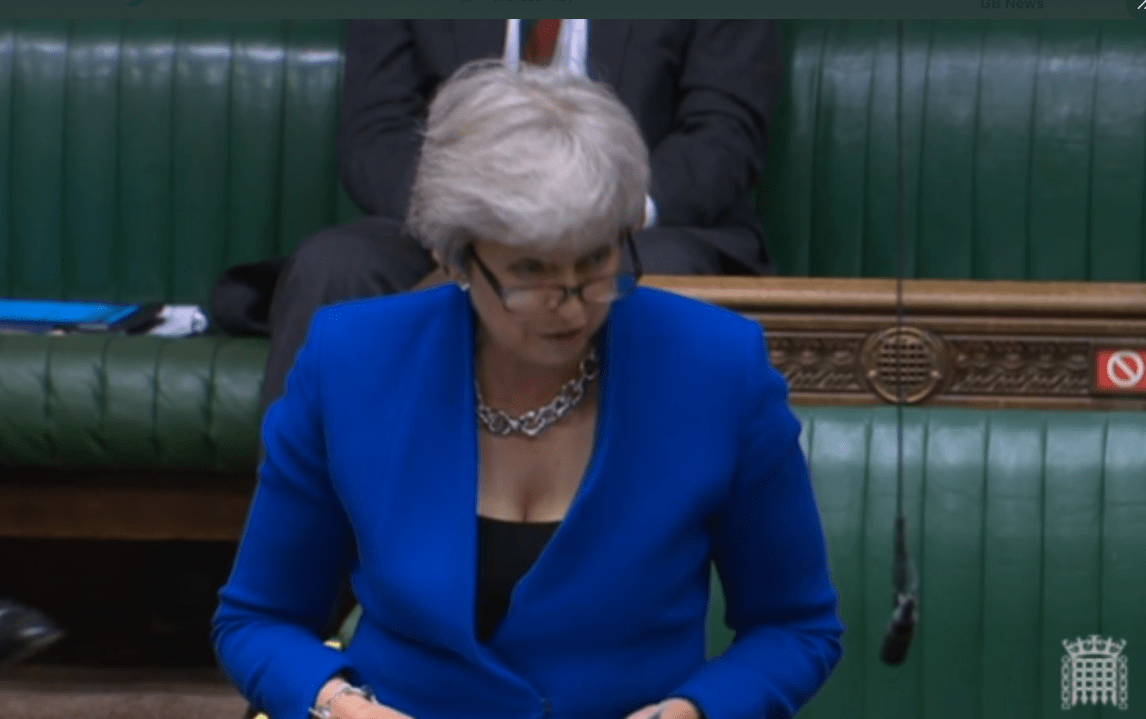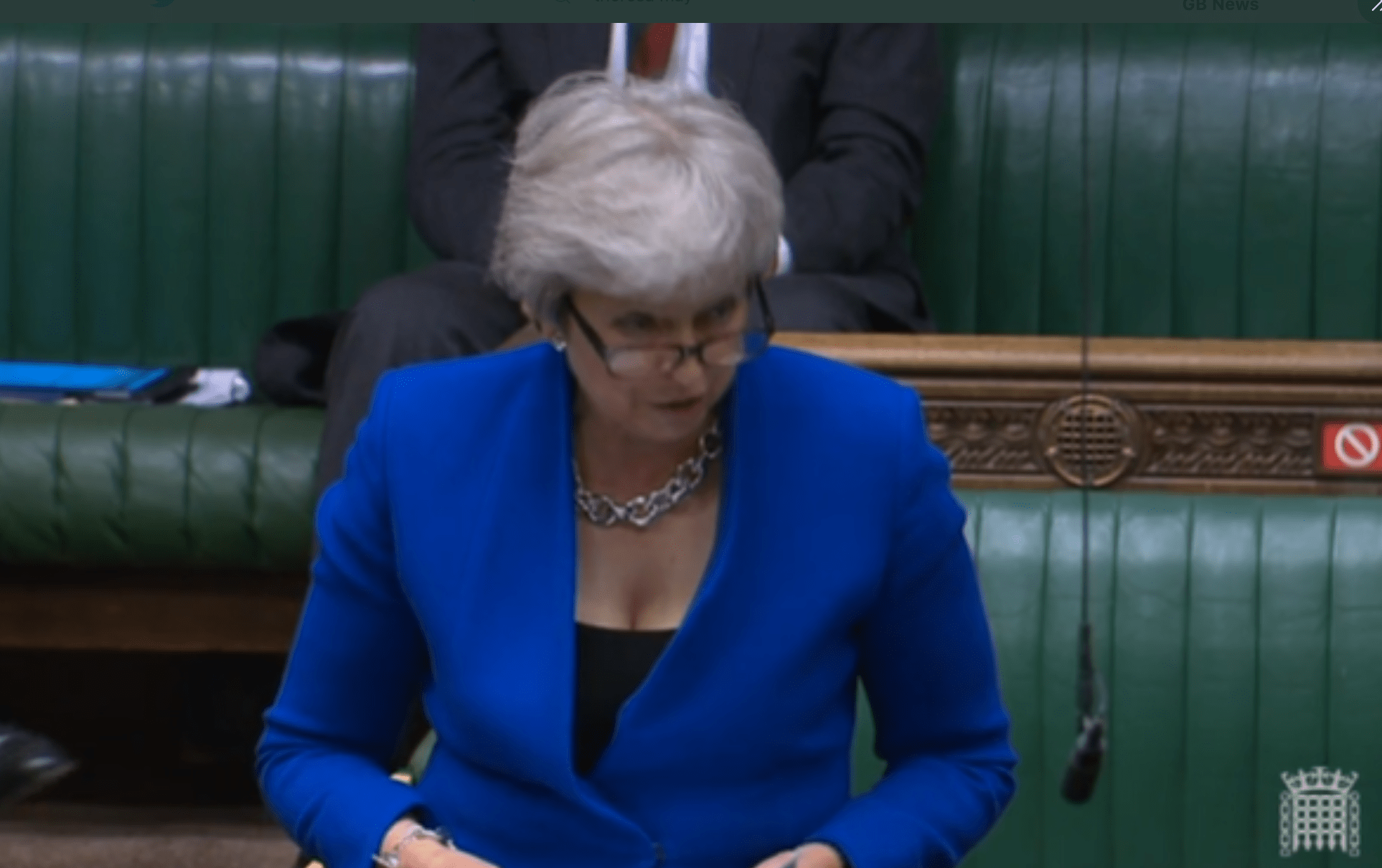Theresa May has just announced that she is going to, ‘with regret’, vote against the government today on aid spending. It will be the first time she has voted against a three-line whip (previously she has abstained on crunch votes).
The former Prime Minister recalled with some force her own dealings with Conservative rebels when she was the first backbencher to speak in the debate on the cut from 0.7 per cent of gross national income to 0.5 per cent this afternoon. ‘As Prime Minister, I suffered at the hands of rebels,’ she said.
But she was even more forceful on the way this government had broken its promise, on how this would mean, in her words, that ‘more of the poorest people in the world will die’ and that she didn’t believe that the tests for restoring the spending commitment to 0.7 per cent would be met in time. The way in which she argued her case will make it much harder for other loyal senior figures to say that they are still rowing behind the government.
May said she had spoken with Rishi Sunak last night, and while she thanked the Chancellor for his time, she made very clear that she just didn’t believe him. She told the Commons that she’d asked when it would be that the 0.7 per cent target would be met, and was told: ‘Four to five years, but it could be sooner.’
She then pointed out that if the government loses today’s vote, the target will go back to 0.7 from January, and that the ‘government couldn’t have it both ways’ by arguing both that it was a sufficiently deep economic crisis that the reduction was necessary and also that the economy was actually doing so well that it would soon be the case that the reduction was no longer necessary.
May was clearly not swayed by the speech given just minutes before by the current victim of Conservative rebels, Boris Johnson. He only took one intervention before refusing to allow any more MPs from any side of the House to add any points until he’d finished, something Sir Keir Starmer said showed he didn’t have much ‘confidence in the arguments he was making’.
He set out the compromise that he and Sunak hope will win over enough MPs to ensure the cut passes: that the cut is temporary until two tests have been satisfied. Those tests are that public debt is falling as a share of GDP and that the government is no longer borrowing to fund day-to-day spending. He also appealed to MPs’ other priorities by saying this cut would help the Conservatives keep their commitments to the NHS, schools and police: that is, those things the electorate are actually interested in.
We are expecting a vote around 4 p.m. As I said earlier, things were already tight. This speech from May will likely have made the whips still more nervous.








Comments